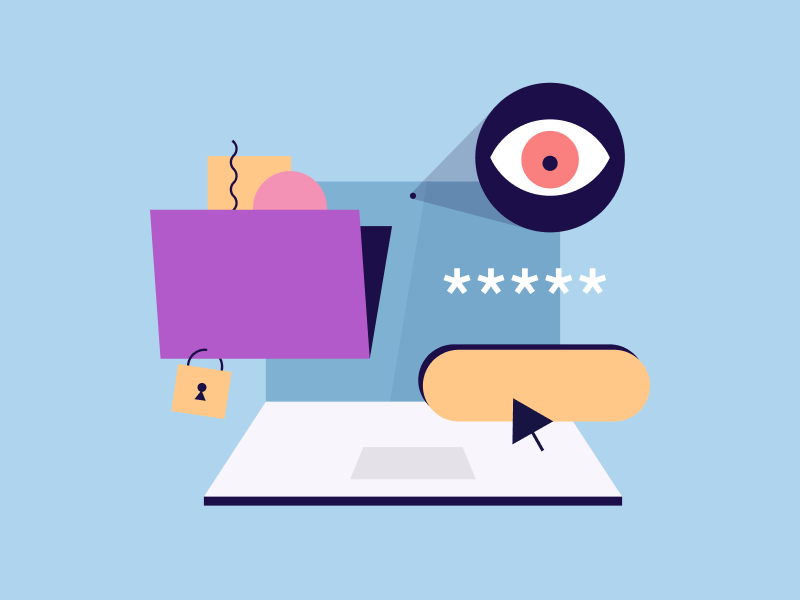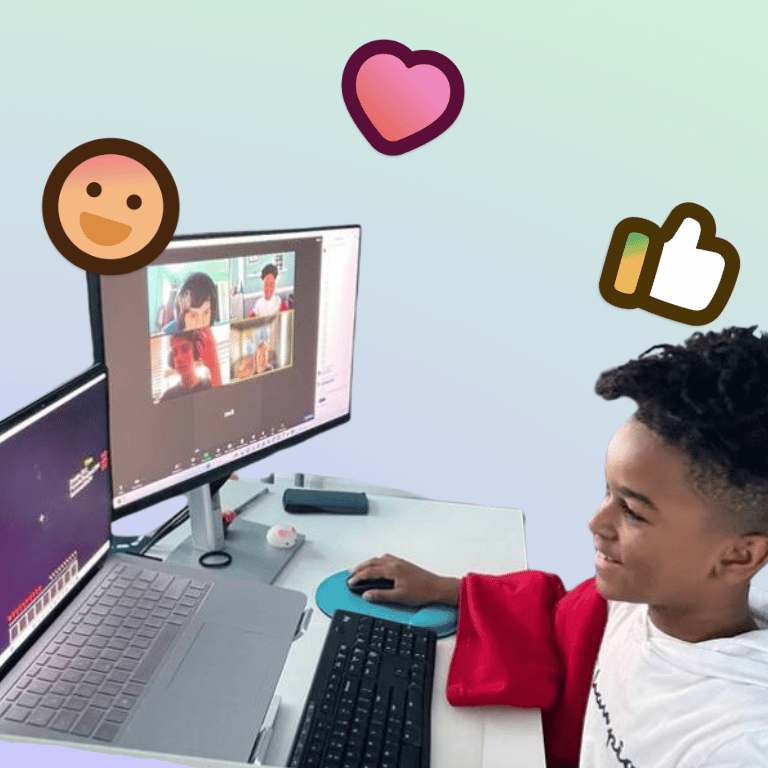You already know homeschooling isn’t about keeping pace with school; it’s about redefining it. Since the pandemic, millions of parents have realized home-based learning offers the opportunity for customizable learning like never before.
Why should your child complete dry, boring workbooks at the same level as thirty other kids who happen to be in their class, when instead they could go at their own pace through hands-on, personalized learning?
At least, that’s the dream! The reality of pulling off your child’s education as an army of one can be much more overwhelming.
How is any homeschooling parent supposed to navigate through the endless maze of homeschooling resources available?
And do you only have to choose once, or should you have different curriculums for each core subject? And what happens if you don’t feel comfortable teaching every subject yourself?
And outside of academics, how do you provide the electives and socialization your child needs to develop as a full human?
The questions go on. And if you have multiple kids, forget it.
Like any modern age problem, an army of tech companies and online programs claim to be the silver bullet to solve all these problems. But before you sign up for the first homeschooling stress-reliever you Google, it’s important to understand the full picture of the online homeschooling landscape to figure out what best fits your needs.
Pros and Cons of Online Homeschooling
“Online learning” has a bad reputation, mostly caused by the disastrous rollout of virtual school during 2020. At Prisma, we’ve developed a new kind of online school instead of putting traditional school online. Kids learn academics through a flexible school day blending independent work on project-based, personalized curriculum with daily live workshops with a consistent cohort of peers. Each learner is matched with a certified teacher called a “learning coach” whose job is to mentor, support, and provide feedback challenging them to grow.
We’re fans of online learning, but it depends how it’s done. Here’s some pros and cons to consider if you’ve stuck to traditional homeschooling until now.
Pros of Online Learning
- Personalized: When a teacher is in front of a classroom, everyone learns at the same pace. Adaptive online programs can customize your child’s instruction to match their understanding.
- Self-Paced: Traditional homeschooling, with you as the “teacher,” doesn’t leave much free time for you or independence for your learner. Many online programs can be independently navigated by kids.
- Expert-designed: Online programs are created by educational experts, ensuring high quality and relevance. You can be sure major programs like Khan Academy or IXL are standards-aligned.
- Ease of record-keeping: If you have a middle or high schooler, maintaining an accurate transcript becomes increasingly important. Most digital platforms remove the guesswork, providing convenient ways to track your kiddo’s progress.
- Building technical skills: Kids should know how to type, research, and navigate online to be successful in formal education. Online programs definitely do this!
Cons of Online Learning
- Risk of Monotony: Some online programs are comprehensive, but involve kids clicking through multiple-choice modules over and over. Aim for platforms incorporating multiple learning styles to avoid turning school into a chore.
- Screen Time Concerns: Balancing digital learning with offline activities is essential for overall well-being!
- Lack of Real-World Relevance: It’s easier to design an online program for regurgitating facts than one building essential 21st century skills like critical thinking, creativity, and communication. This is our specialty at Prisma, but if you choose a more traditional platform, consider incorporating project-based learning elsewhere.
- Reduced Social Interaction: Online learning can limit opportunities for social engagement, requiring proactive efforts for community involvement. And if you choose an online program with no live interaction at all, it’s even more important.
Types of Online Homeschool Programs
Over the past few years, lines have gotten blurry between homeschooling and online schooling, especially as many homeschooling families do a mix. As you’re exploring online homeschool options, you’ll mostly see:
- Online Homeschool Curriculum: Comprehensive programs without live teachers, offering lessons through videos, quizzes, and interactive activities.
- Online Classes: Subject-specific online courses in anything from coding to language arts to Spanish. Like an in-person elective, students show up and are taught by a teacher alongside peers.
- Online Public Schools: The traditional experience, only online. Available in most states, but variant in quality. Some programs are mostly self-paced, and others involve more interaction.
- Online Private Schools: Offer more personalized education experiences, often with greater resources and teacher support, but at a higher cost.
How to Evaluate Online Homeschool Programs?
When deciding which online program to go with, weigh it against these considerations:
- Comprehensive or Mix-and-Match: Do you prefer an all-in-one solution to make your life easier, or a mix of different subjects and resources tailored to your child’s needs?
- Parental Involvement: Consider your availability for hands-on teaching, record-keeping, and progress assessment. Some programs offer more support in these areas than others.
- Accreditation: Prisma is accredited by Cognia. Accreditation indicates the curriculum has been reviewed & vouched for a by a third party.
- Price: Costs vary widely, from free homeschool curriculum to tuition based online schools like Prisma. Determine your budget and find a program offering the best value for your investment.
- Rigor: The best homeschool programs emphasize skill-building and critical thinking over fact memorization. This is crucial for college prep and will keep your child in line with kids at innovative, competitive schools.
- Engagement: Kids learn more when learning is fun and meaningful (at Prisma, we call this “hard fun.”) Does the program offer hands-on learning opportunities? How does the program keep kids motivated? Is there choice built into the learning experience?
- Community Engagement: Find out if the program offers ways for homeschooled students to interact, collaborate, and learn together, helping build essential social skills.
Guide to Online Homeschool Curriculum?
Below are some of the most popular options for online homeschool curriculum without live teachers. Since Prisma is secular, this guide focuses on secular options, but there are many popular Christian options available in this category, such as BJU Press, Easy Peasy All-in-One Homeschool, and Abeka.
Time4Learning
Grade Levels: Pre-K to 12th Grade
Style: Interactive and student-paced with a mix of animated lessons, printable worksheets, and assessments.
Cost: Monthly subscription model with rates varying by grade level.
Fans say: It’s praised for its comprehensive coverage, flexibility, and ease of use. Parents appreciate the automated reporting, which simplifies record-keeping. Some kids find the interactive elements engaging.
Critics say: Some find the content can become monotonous over time. A few users mention it may not be challenging enough for advanced students, and the high screen time is a concern for some parents.
Khan Academy
Grade Levels: Grades K-12 and above
Style: Self-paced learning platform with a strong emphasis on math and science. Khan Academy uses clearly explained video lessons and mostly multiple-choice exercises to teach a variety of concepts.
Cost: Completely free.
Fans say: Users praise Khan Academy for its comprehensive video lessons and interactive exercises catering to individual learning paces. There’s also a ton of topics, from college-level AP courses to Social Media Literacy and Personal Finance; plus a new AI tutoring tool called Khanmigo.
Critics say: The platform is not intended as a full curriculum, but rather as a supplement. It is primarily focused on math and science, with limited content in other subjects. Some users find the lack of structured scheduling and formal assessments a downside, as it may be challenging for some students to stay on track and for parents to monitor progress effectively
Acellus Academy
Grade Levels: Covers elementary (K-5), middle school (6-8), and high school (9-12) levels.
Style: Acellus Academy follows the traditional homeschooling method, offering a structured curriculum akin to what students might experience in a conventional school setting. This includes a mix of lectures, discussions, and hands-on activities aimed at providing a well-rounded education.
Cost: Offered at differently monthly rates depending on if you choose Basic, Enhanced, or Premium, ranging from $249/month-$499/month.
Fans say: Parents appreciate Acellus for its wide range of elective classes and the flexibility to choose different grades for different subjects. It’s praised for not overwhelming students with busywork. The self-paced nature of the curriculum is also a significant plus for some.
Critics say: Some drawbacks include a limited selection of language electives and a lack of offline worksheet resources. The cost is a concern for some families, and a few have found the social studies component to be less engaging.
Mia Academy
Grade Levels: K-8
Style: Mia Academy’s online homeschool program incorporates video-based lessons and quizzes with rewards designed for motivation. The curriculum is self-paced, and parents have full control to customize both the curriculum and schedule.
Cost: The pricing ranges from $29.99 to $40.00 per month.
Fans say: Parents have noted the program’s engaging nature and its ability to retain the attention of easily distracted children. The flexibility in terms of curriculum and pace customization is highly valued, especially for families looking for a personalized learning experience.
Critics say: Some find the curriculum to be too easy or babyish for the upper end of the intended grade range. There has also been some discussion about the exclusion of “controversial” topics from Miacademy’s science curriculum.
ABC Mouse
Grade Levels: Designed for children aged 2-8, covering preschool through second grade. Also offers another product, Adventure Academy, for ages 8-13.
Style: The platform employs a variety of educational tools such as games, art activities, puzzles, and audio pages. It aims to cater to diverse learning styles and preferences. The user interface is designed to be child-friendly with engaging graphics and videos.
Cost: Subscription model, with a fee of less than $10 per month. They offer a free trial period to test the service before committing to a subscription.
Fans say: Families who love ABC Mouse say it holds young kids’ attention through bright colors and engaging videos. The site is frequently updated and tracking methods are strong.
Critics say: Some users find the content may become repetitive or less challenging for children as they approach the upper age limit of the platform. Concerns about the platform’s effectiveness in comprehensively covering standards in upper elementary have also been raised.
Guide to Online Courses & Schools
If you want your learner to get instruction from teachers and interactions with peers, an online course or online school might be more what you’re looking for than a self-paced curriculum.
Pick-and-Choose Online Courses
Outschool is used by tons of homeschooling families to take everything under the sun, from cooking to essay writing to video game design to physical fitness. Since Outschool is an open marketplace of classes, quality may vary, but the review system helps you do research. If you’re looking for consistent community, some Prisma parents have shared peer attendance on Outschool was sporadic, so it may not be the best way to make long-term friendships.
Kubrio XP offers innovative courses in topics from robotics to creative writing, and is aimed at the unschooling and worldschooling market. Similarly, Synthesis Teams is popular with Prisma learners for its game-based simulations building critical thinking and collaboration skills.
Online Public Schools
Online public schools combine the structure of traditional schooling with the flexibility of homeschooling. You can typically find information through your state’s Department of Education website or by contacting local school districts on options in your area.
Opting for an online public school can be beneficial for its structured curriculum and access to certified teachers, but it may lack the customization and freedom traditional homeschooling provides. Because online public schools are operating on a limited budget, many families also report next to no individual attention from teachers in these programs.
Online Private Schools
Online private schools, due to their tuition-based nature, offer more individualized attention. For instance, at Prisma, learners are matched with a certified teacher as a “learning coach” who meets with them 1:1 and provides personalized feedback.
Best Online Private Middle Schools
Best Online Private High Schools









